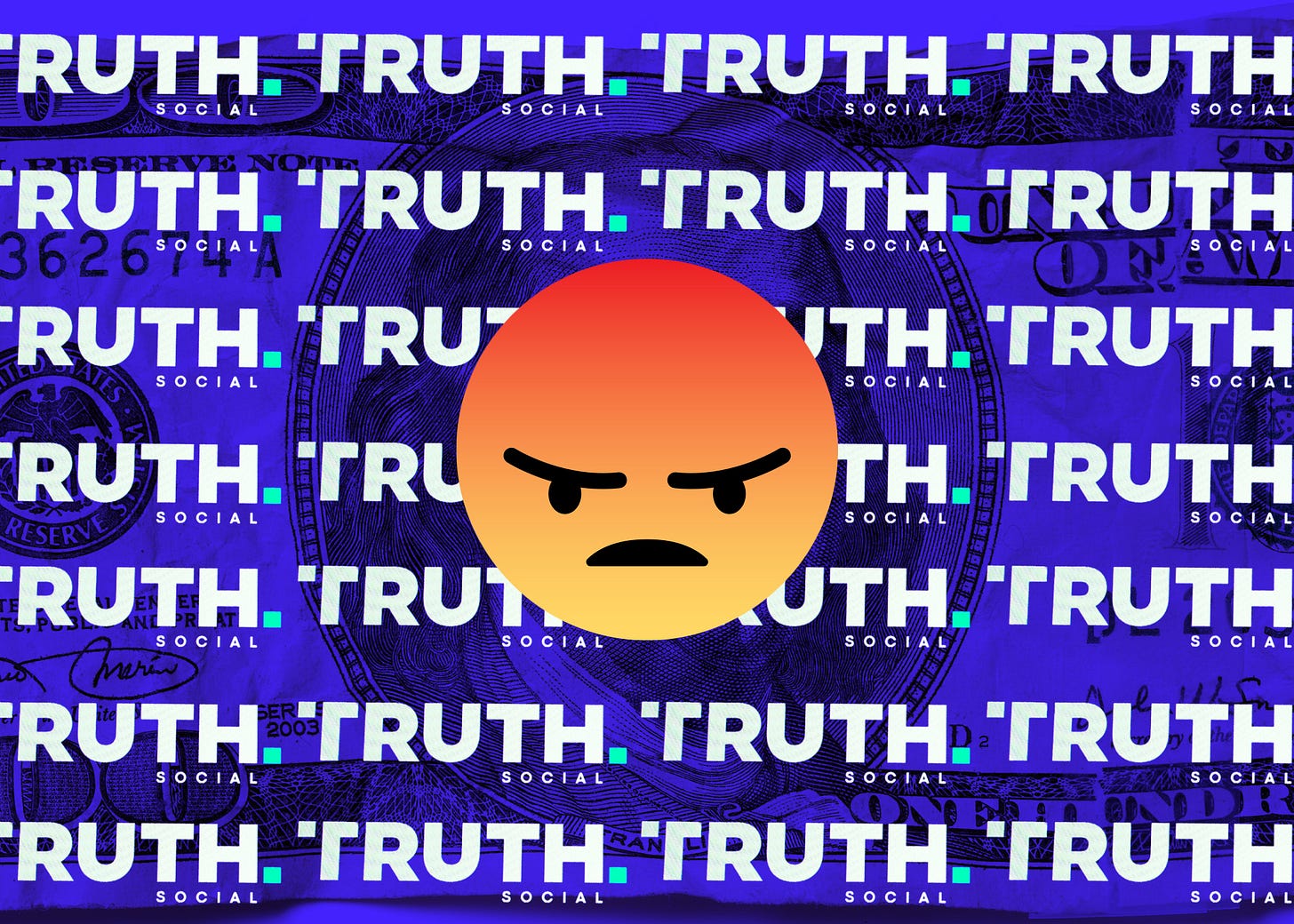The People Who Bought Stock in Trump’s Truth Social Are Very Angry
Not at Truth Social. They’re angry at the “dark pools” and “naked short sellers” who are preventing them from getting rich.
Before we get started: Economists had predicted that the economy would add 180,000 jobs in May. Last week we got the numbers and job growth blew out expectations with 272,000 new jobs added.
Also: Wage growth was up.
If you would like to read several pieces on Why the Big Job Gains Are Bad for Biden, I can help you with that.
CNN: “Here’s the ‘bad news’ in the ‘good’ jobs report.” The Hill: “Strong jobs report presents conundrum for Biden.” And of course, our friends at the New York Times: “Biden Has a Historically Strong Job Market. It May Not Be Enough.”
Imagine what the headlines would have been if the report was below expectations or, God forbid, showed job loss?
1. Truth Social
Bloomberg’s Jason Leopold filed a bunch of FOIA requests with the SEC about Trump’s Truth Social. (DJT is the stock ticker, so that’s what I’m going to refer to it as since “Trump Media & Technology Group” is unwieldy.)
There are a lot of shady things about DJT. For instance, in its last quarter it reported gross revenues of $800,000 and net losses of $327 million. Also: It has a market capitalization of $8 billion. With a “b.” Not a typo.
Let me give you a sense of scale. I am not privy to Heather Cox Richardson’s financials, but I know a lot about the economics of Substack. Her newsletter—which is excellent—probably brings in 8x the annual revenue of DJT and her total costs are basically her time. So if Heather Cox Richardson’s newsletter was a publicly traded company and it was valued at the same P/E ratio as DJT, then she’d be worth more than the entire market capitalization of APPL and MSOFT combined.1
My point: DJT is not a business.
You could make the case that it’s an NFT—a token that people buy to display their fealty to Trump’s brand. No different, really, than a bumper sticker or a flag.
Or maybe it’s just a memestock—a publicly traded roulette wheel on which people gamble for entertainment purposes.
But I propose that DJT is best understood as an exotic financial instrument that facilitates the voluntary transfer of wealth.2
What’s funny is that when Jason Leopold got hold of SEC complaints about DJT, for the most part they were not from people waving red flags about how this publicly traded company might be a scam.
Oh no.
The People were complaining that dark, shadowy forces were preventing DJT’s stock price from going even higher.



